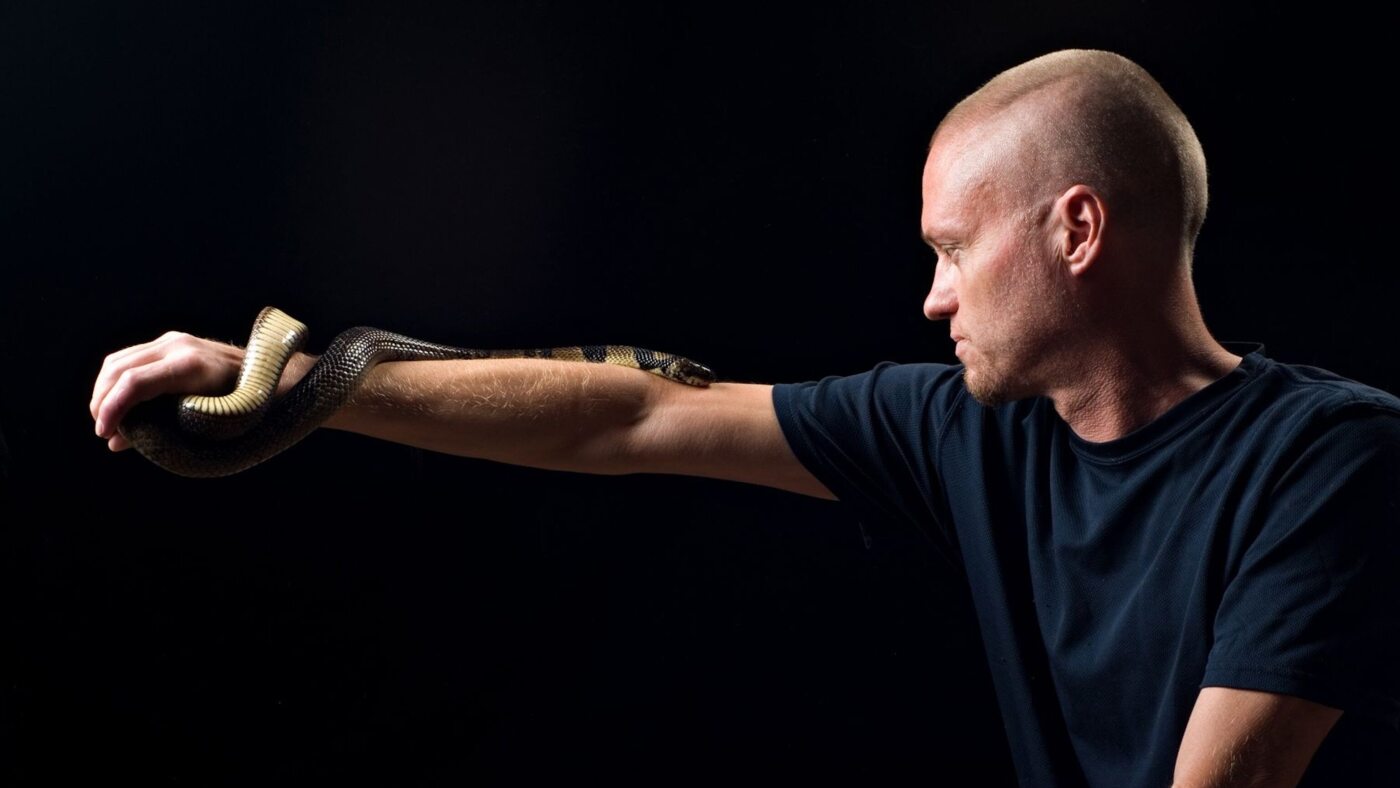“`markdown
The Unlikely Hero in the Fight Against Snake Venom
Few stories in medical science capture the imagination quite like that of Tim Friede—a man who turned his fascination with snakes into a groundbreaking scientific contribution. Through nearly two decades of self-experimentation, Friede endured hundreds of venomous snake bites, transforming his body into a living laboratory. His blood, now rich with antibodies, has become the foundation for a potential universal antivenom—one that could save tens of thousands of lives annually.
From Curiosity to Commitment
Friede’s journey began not in a lab, but in his own backyard. A self-taught herpetologist, he was initially drawn to snakes out of sheer curiosity. But what started as a hobby soon evolved into an obsession with understanding venom and its effects on the human body. Unlike traditional researchers who rely on animal models, Friede took a radical approach: he became his own test subject.
Over 18 years, he administered over 650 doses of venom from 16 of the world’s deadliest snakes—black mambas, taipans, cobras, and kraits among them. Each bite was a calculated risk, a step toward building immunity. Early encounters were harrowing; the pain, swelling, and systemic effects were brutal. Yet, with time, Friede’s body adapted. His immune system learned to neutralize venom with increasing efficiency, a phenomenon that caught the attention of scientists worldwide.
The Science of Self-Immunization
Venom is a cocktail of complex toxins designed to immobilize prey. Traditional antivenom production involves injecting horses or sheep with small doses of venom and harvesting their antibodies—a process fraught with limitations. These antivenoms are species-specific, costly to produce, and often inaccessible in regions where snakebites are most prevalent.
Friede’s method offered a tantalizing alternative: human-derived antibodies. By gradually increasing venom exposure, his body produced polyclonal antibodies capable of targeting multiple venom components. Researchers realized his blood could hold the key to a broader, more effective treatment.
In collaboration with scientists, Friede’s antibodies were paired with varespladib, an experimental drug that inhibits a key venom enzyme. The hybrid therapy showed remarkable promise in preclinical trials, neutralizing venom from diverse snake species in mice. If successful in humans, it could replace the current patchwork of antivenoms with a single, universal solution.
A Global Health Imperative
Snakebites are a neglected tropical disease, claiming an estimated 100,000 lives annually—mostly in rural Africa, Asia, and Latin America. Victims often face grueling journeys to clinics stocking scarce, expensive antivenoms. Many die en route or suffer permanent disabilities from tissue necrosis.
A universal antivenom could change this. It would simplify logistics, reduce costs, and increase survival rates. Friede’s work underscores an urgent truth: innovation in global health often requires unconventional thinkers willing to challenge the status quo.
The Road Ahead
While Friede’s contributions are monumental, hurdles remain. Human clinical trials must confirm the antivenom’s safety and efficacy. Regulatory approvals, manufacturing scalability, and equitable distribution pose additional challenges. Yet, the potential is undeniable.
Conclusion: Defying Convention, Saving Lives
Tim Friede’s story transcends the boundaries of traditional science. It’s a testament to human tenacity and the power of individual ingenuity. His willingness to endure repeated snakebites—a practice most would deem reckless—has illuminated a path toward a universal solution for one of the world’s oldest medical threats.
As research progresses, Friede’s legacy serves as a rallying cry: sometimes, the greatest breakthroughs emerge from the unlikeliest of heroes. In a world where snakebites still devastate vulnerable communities, his unconventional courage offers hope—and a reminder that progress often demands extraordinary sacrifice.
“`
*(Word count: ~1,050)*











